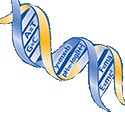U.S. High School Science Lab Experiences Often Poor, But Research Points Ways to Improvements
WASHINGTON -- The quality of science laboratory experiences is poor for most U.S. high school students, but educators can improve these experiences by following four key principles of effective instruction, says a new report from the National Academies' National Research Council. The shift would make lab activities more likely to help students reach important goals of science education, including cultivating an interest in science, developing scientific reasoning skills, and mastering science subjects.
The committee that wrote the report conducted a comprehensive review of research on how U.S.high school science labs affect science learning, and on the whole,available knowledge is inadequate, it said. Research gaps, including alack of consensus on how to define these labs or their purpose, make it difficult to reach conclusions on the best approaches to laboratory teaching and learning. However, sufficient evidence shows that the nation's high school science labs generally do not follow four established principles for effective science instruction:
+ Design science lab experiences with clear learning outcomes in mind
+ Thoughtfully sequence lab experiences into science instruction
+ Integrate learning science content and learning about the processes of science
+ Incorporate ongoing student reflection and discussion
"Although more rigorous research on the role and value of high school science laboratory experiences is needed, existing research is useful for curriculum designers, teachers, and other education leaders to make improvements now in how science teaching and lab experiences are structured to support learning," said committee chair Susan Singer,professor of biology, Carleton College, Northfield, Minn. "New research efforts should include the systematic collection and dissemination of the best classroom practices."
On average, U.S. high school students enrolled in science classes spend about one period each week on lab work, such as comparing different cell types under a microscope or adding a solution of known acidity to a solution of unknown alkalinity. A "laboratory" may refer to a room where students use special equipment to carry out well-defined procedures, or solely to different types of science activities. The committee used the term"laboratory experiences" to describe those that take place in any relevant setting and that provide students with opportunities to interact directly with the material world or with data drawn from it --using the tools, data-collection techniques, models, and theories of science.
Students should participate in a range of lab activities to verify known scientific concepts, pose research questions, conceive their own investigations, and create models of natural phenomena, the report says. This kind of broad exposure could enhance their understanding of the relationships between empirical research and scientific theories and concepts.
Historically, lab experiences have been disconnected from the flow of science lessons in U.S.classrooms, and this remains typical, the report says. Such lab experiences help develop some aspects of scientific reasoning and play a role in boosting students' interest in science, but they have little effect on helping them master subjects. These exercises are often narrow in scope and more focused on mechanical procedures than on meaning.
In recent years, researchers have begun to design and study "integrated instructional units" that connect the lab with other types of science learning. In this approach, students help frame research questions, design and execute experiments, and construct scientific arguments and explanations -- key elements of the scientific process. Few large-scale studies have been conducted on these units,the report says, but limited evidence shows promising gains for diverse groups of students in understanding the subject matter, developing scientific reasoning skills, and boosting interest in science. One example engages students in performing a series of chemical reactions and weaves those lessons with other forms of chemistry instruction.Preliminary results from an ongoing five-year study in the Montgomery County, Md., school district were so positive that this instructional unit was scaled up from five middle schools to more than 30.
Several factors play a role in the prevalence of typical, old-style lab work,the report says. Teachers are rarely trained to effectively lead lab experiences that follow the four design principles. The way schedules,space, and other resources are organized in most high schools also may impede teachers' and administrators' learning about how to carry out effective science instruction. Moreover, if state science standards are interpreted as encouraging the teaching of certain science topics at various grade levels, teachers may feel too pressed for time to teach labs well.
In an increasingly complex, high-tech society, U.S.high school graduates need a basic understanding of science and technology to lead productive lives, the report says. To improve their understanding, most science laboratory experiences must be reformed.
The study was sponsored by the National Science Foundation. The National Research Council is the principal operating arm of the National Academy of Sciences and the National Academy of Engineering. It is a private,nonprofit institution that provides science and technology advice under a congressional charter. A committee roster follows.
